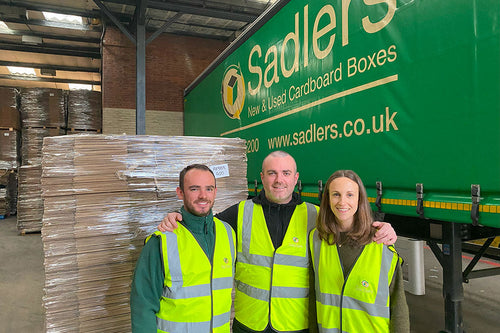Opportunities for greater efficiency and waste reduction in packaging

Cardboard is a fantastic material for packaging, but the manufacturing of new boxes (even when they contain majority recycled fibres) uses resources that can be saved if the life of a box is extended that little bit more by reuse.
Here are some environmental facts and figures that might persuade you to think about cardboard box reuse…
- Paper use is steadily increasing. It has exceeded 400 million tonnes per year.
- More than half of paper used globally is for packaging (cartonboard and containerboard).
- 2010 - 2015 showed a net annual decrease in forest area of 3.3 million hectares, and this figure doesn't even take into account the massive loss of natural forests by conversion to pulp plantations.
- The pulp and paper industry is one of the world's biggest polluters, as one of the heaviest users of fresh water.
This is why we are passionate about promoting the benefits of reusing cardboard boxes and packaging, not just at consumer level but at corporate level. We buy second hand boxes and divert them to the reuse market. This means that if a company is unable to reuse the boxes themselves, they can be safe in the knowledge that others can reuse them instead, without having to bale and pulp reusable material.
The packaging sector has the greatest opportunity for efficiency improvements and waste reduction when it comes to paper and cardboard, and the rise in the use of corrugated boxes for the online retail sector demonstrates a need to find reusable alternatives.








The facts and figures in this article are sourced from the Environmental Paper Network in a report entitled The State of the Global Paper Industry, 2018.
Featured Articles

December 03, 2025
Options for Recycling Cardboard Boxes
How to recycle cardboard waste: a guide for business and the home The principles of recycling have b...

November 27, 2025
We are WINNERS of a National Recycling Award!
We're thrilled to announce a big win at the MRW National Recycling Awards 2025! Our pioneering cardb...

October 08, 2025
We’ve been shortlisted for the National Recycling Awards!
We’re excited to announce that we’ve been shortlisted in the circular economy category at the Nation...

July 17, 2025
Sadlers becomes Sustainability West Midlands Member
Back in February this year we made the decision to join the Sustainability West Midlands network whi...